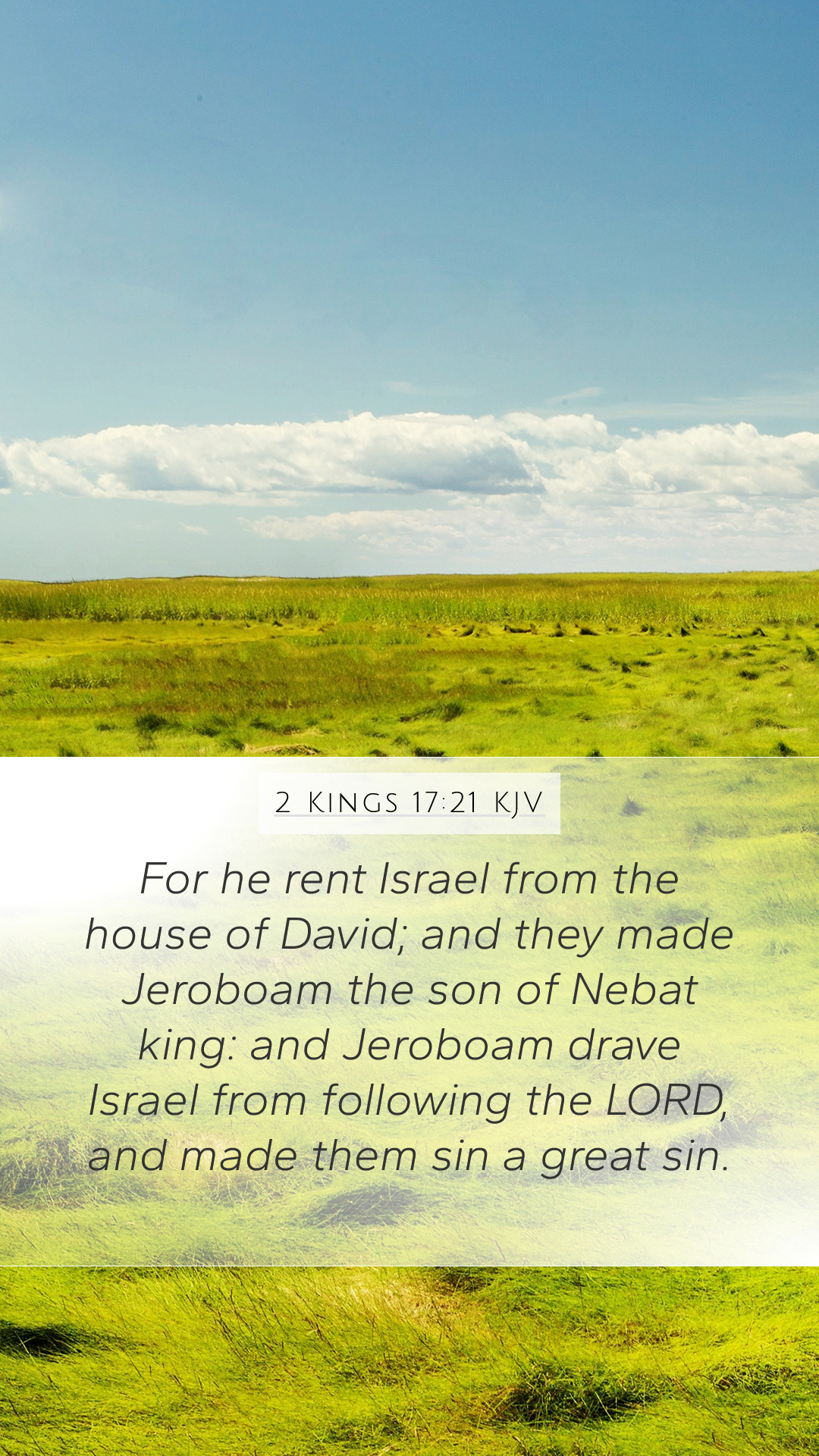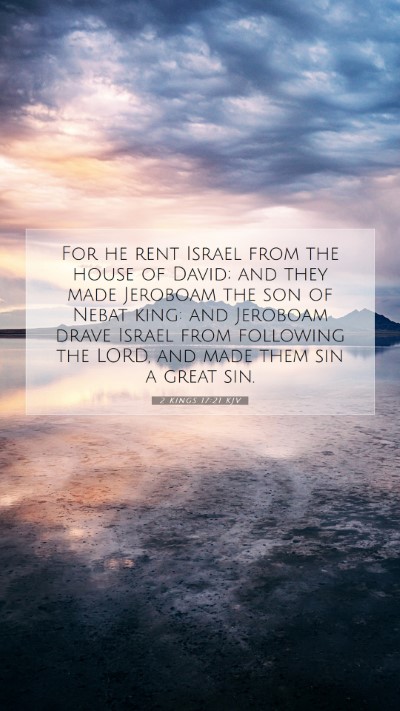Bible Verse Meaning: 2 Kings 17:21
This commentary seeks to provide a comprehensive understanding of 2 Kings 17:21, detailing its significance through scripture analysis and providing insights from several respected public domain commentaries, including those by Matthew Henry, Albert Barnes, and Adam Clarke. By examining this verse, we aim to deliver informative content on Bible verse meanings, interpretations, explanations, and related study insights.
Verse Text
2 Kings 17:21 (KJV): “For he rent Israel from the house of David; and they made Jeroboam the son of Nebat king: and Jeroboam drave Israel from following the Lord, and made them sin a great sin.”
Context and Historical Background
The context of 2 Kings 17:21 is crucial for understanding its implications. The verse reflects on a significant moment in Israel's history when the ten northern tribes broke away from the rule of the southern kingdom of Judah. This event led to the establishment of a separate kingdom under Jeroboam, who is often remembered for his role in leading Israel into idolatry and sin against the Lord.
Verse Analysis
Matthew Henry's Commentary
Matthew Henry highlights the gravity of Israel's rebellion against God's covenant. He points out that the separation from the house of David not only fulfilled God's prophecy but also marked a turning point that would lead the nation into significant spiritual decline. Jeroboam’s leadership is presented as a critical factor that contributed to the moral decay, where he convinced Israel to worship golden calves instead of the true God.
Albert Barnes' Commentary
Albert Barnes provides insight into the mechanics of the split and Jeroboam’s actions. He emphasizes that Jeroboam's fear of losing power led him to devise a new form of worship that diverged from the established religious practices in Jerusalem. This was a pivotal moment that initiated a series of unfaithful acts by the people, demonstrating the results of forsaking God's commandments.
Adam Clarke's Commentary
Adam Clarke draws attention to the significant implications of this schism for both kingdoms. He elaborates on how Jeroboam's decision to establish alternate centers of worship not only affected the religious landscape but also had lasting social and political repercussions. Clarke also reflects on the idea of sin, describing how the willful acts of disobedience led Israel further away from divine guidance.
Key Themes and Lessons
- Rebellion and Consequences: The act of separating from Judah symbolizes a rebellion against God's established order. This rebellion sowed discord and sin among the people.
- Leadership Influence: Jeroboam’s role as a leader highlights the weight of leaders in shaping the spiritual direction of a nation. Poor leadership can lead the masses astray.
- Idolatry and Sin: The great sin mentioned in the verse underscores the danger of idolatry and false worship, reminding believers to remain vigilant in their faith.
Application for Today
In contemporary times, the message of 2 Kings 17:21 can be applied to our understanding of authority, accountability, and the importance of adhering to spiritual truths. As we engage in our Bible study resources, we should reflect on how leadership impacts faith communities and consider the repercussions of turning away from God's commandments. This highlights the necessity of understanding scripture deeply, especially in times of great societal change.
Cross References
- 1 Kings 12:16-20 - The division of the kingdom
- 2 Chronicles 11:13-14 - The turning away of the people from the house of David
- 1 Kings 14:9 - Jeroboam’s sin leading Israel to worship idols
Conclusion
2 Kings 17:21 serves as a stark reminder of the consequences of abandoning faithfulness to God. By examining the insights from respected commentaries, we gain a richer understanding of this historical event and its theological implications. As we explore Bible verse meanings, interpretations, and explanations, we are encouraged to apply these lessons in our lives today through diligent study and commitment to God's word.


